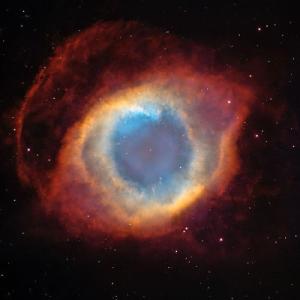
নহ মাতা, নহ কন্যা, নহ বধূ, সুন্দরী রূপসী হে নন্দনবাসিনী উর্বশী।
গোষ্ঠে যবে নামে সন্ধ্যা শ্রান্ত দেহে স্বর্ণাঞ্চল টানি
তুমি কোনো গৃহপ্রান্তে নাহি জ্বালো সন্ধ্যাদীপখানি।
দ্বিধায় জড়িত পদে কম্প্রবক্ষে নম্রনেত্রপাতে
স্মিতহাস্যে নাহি চল লজ্জিত বাসরশয্যাতে অর্ধরাতে।
উষার উদয়-সম অনবগুণ্ঠিতা তুমি অকুণ্ঠিতা।।
সুরসভাতলে যবে নৃত্য করো পুলকে উল্লসি
হে বিলোল হিল্লোল উর্বশী,
ছন্দে নাচি উঠে সিন্ধুমাঝে তরঙ্গের দল,
শস্যশীর্ষে শিহরিয়া কাঁপি উঠে ধরার অঞ্চল,
তোমার মদির গন্ধ অন্ধ বায়ু বহে চারি ভিতে,
মধুমত্ত ভৃঙ্গ-সম মুগ্ধ কবি ফিরে লুব্ধ চিতে উদ্দাম গীতে।
নূপুর গুঞ্জরি চলো আকুল-অঞ্চলা বিদ্যুতচঞ্চলা।।
রাগ: মিশ্র কানাড়া
তাল: কাহারবা
রচনাকাল (বঙ্গাব্দ): ২৩ অগ্রহায়ণ, ১৩০২
রচনাকাল (খৃষ্টাব্দ): ৮ ডিসেম্বর, ১৮৯৫
রচনাস্থান: জলপথে, শিলাইদহের অভিমুখে
Noho Mata, noho kanya
Beautiful one, who is not mother nor daughter, nor consort, but a celestial being on earth.
When evening descends on pastures, drawing a golden veil across tired limbs,
You do not light a lamp of good will in any home.
Nor on hesitant shy steps, do you walk with trembling heart and softened gaze
Gentle smile playing on lips, to the bridal bed when the hour grows late.
You are like the break of dawn, unhidden and unashamed.
When you dance in the heavenly courts with joyous thrill
With quick abandon like a wave,
The very waves of the sea dance in answer to thee,
The tips of fruiting crops sway as a robe across the land,
Your perfume is carried by the blind breeze to intoxicate all,
Like a honey drunk bee, the entranced poet follows you greedily in eager song.
Your anklets tinkle as you walk, your sweeping veil like flashes of lightning.
Raga: Mishra Kannada
Beat: Kaharba
Written: 8th December, 1895
On the way to Shilaidaha
Follow the link to hear Suchitra Mitra sing:
http://www.youtube.com/watch?v=ERzxkyb99Jw
Sagar Sen:
http://www.youtube.com/watch?v=j2dYwzm6sd0
***
অভয় দাও তো বলি আমার
wish কী–
একটি ছটাক সোডার জলে
পাকী তিন পোয়া হুইস্কি ।।
রাগ: কালাংড়া
তাল: মুক্তছন্দ
রচনাকাল (বঙ্গাব্দ): 1307
রচনাকাল (খৃষ্টাব্দ): 1900
If I may without fear say
What I wish for –
Just a measure of soda water
Darkened with some strong whisky.
Raga Kalangra
Beat: Freestyle
Written: 1900
Follow the link to hear Ashoketaru Bandyopadhyay sing:
http://www.youtube.com/watch?v=9HqJKc7zxKo&feature=share
***
কথা কোস্ নে লো রাই, শ্যামের বড়াই বড়ো বেড়েছে ।
কে জানে ও কেমন ক’রে মন কেড়েছে ।।
শুধু ধীরে বাজায় বাঁশি, শুধু হাসে মধুর হাসি—
গোপিনীদের হৃদয় নিয়ে তবে ছেড়েছে ।।
রাগ: ভৈরবী
তাল: দাদরা
রচনাকাল (বঙ্গাব্দ): 1290
রচনাকাল (খৃষ্টাব্দ): 1883
Do not say a word Rai, your Shyam has too much pride!.
What has he ever done to win your love?
All he does is play gentle tunes and smile sweet smiles –
And yet he has stolen every heart with his wiles.
Raga: Bhairavi
Beat: Dadra
Written: 1883
Follow the links to hear Pandit Ajoy Chakraborty sing:
http://www.youtube.com/watch?v=HF9FORlEUU4







You must be logged in to post a comment.